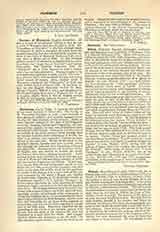

Florez, ENRIQUE, Spanish theologian, archseologist, and historian; b. at Valladolid, February 14, 1701; d. at Madrid, August 20, 1773. While still very young (1715) he joined the Order of St. Augustine, and there-after he devoted his entire life to great works on history and antiquities, which are valuable contributions to the civil and ecclesiastical history of Spain. He was one of the most learned men produced by Spain, and on account of his learning enjoyed the respect and friendship of the most eminent men of his time. His best-known and most important work is “La Espana Sagrada, o teatro geografico-historico de la Iglesia de Espana” (51 vols., Madrid, 1747-), a work following the same plan as the “Gallia christiana” of Sainte-Marthe and the “Italia sacra” of Ughelli. It is a history of the Church in Spain, with biographies of bishops, and its value is enhanced by the insertion of ancient documents which are not to be found elsewhere. But the work was of such large scope that he did not live to finish his task, so that, of the fifty-one volumes of which the history consists, Florez wrote and published only a little more than half (twenty-nine volumes), the rest being written and published after his death by two other Augustinians, Fathers Risco and Fernandez. This and other works of Father Florez are enriched by carefully made illustrations which serve still further to increase their value. In 1743 he published his historical work, the curious “Llave historial”, a work similar to the French “Art de verifier les dates”, but having the advantage of priority over the latter, which did not appear until 1750. This book passed through several later editions in 1774, 1786, and 1790. It did not, however, add much to the literary fame of its author. Father Florez had pursued studies in numismatics and published “Espana carpetana; medalias de las colonias, municipios, y pueblos antiguos de Espana” (3 vols., Madrid, 1757), dealing with the history of Spain when that country was occupied by the Romans. Other works of Florez were “Cursus Theologise” (5 vols., Madrid, 1732-38), one of his earlier works, and “Memorias de las reynas Catolicas” (2 vols., Madrid, 1761, 1770, and 1779), a genealogical history of the royal house of Leon and Castile.
VENTURA FUENTES

